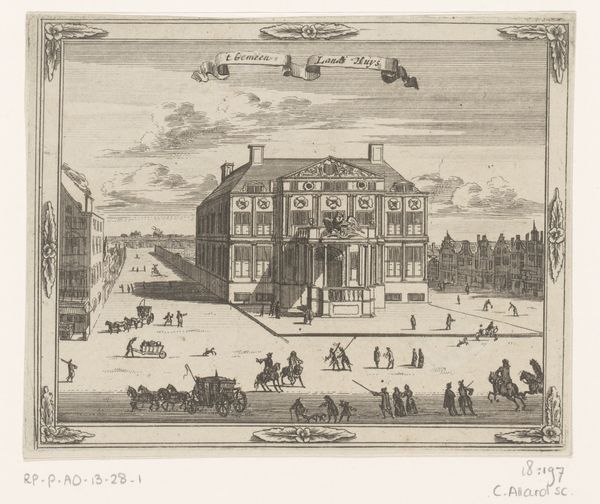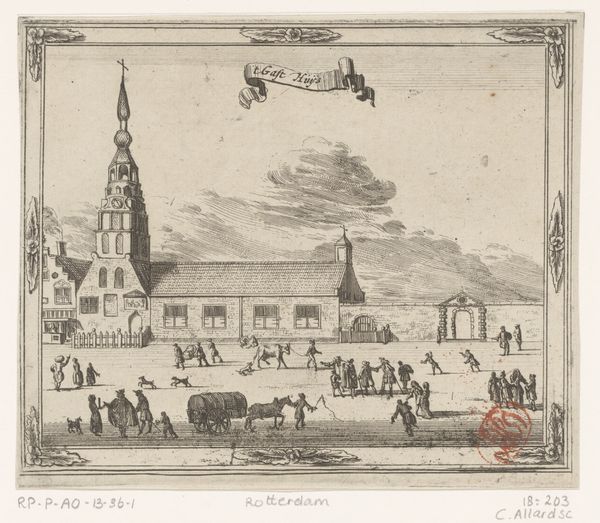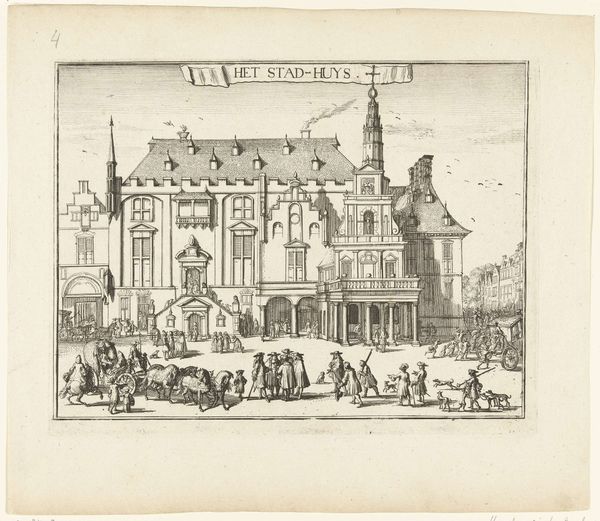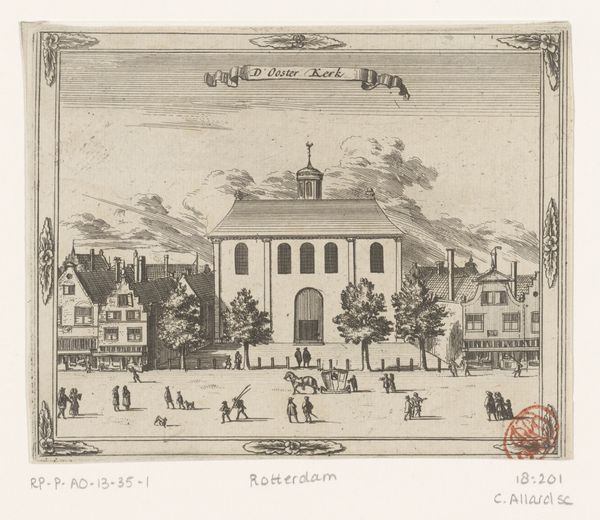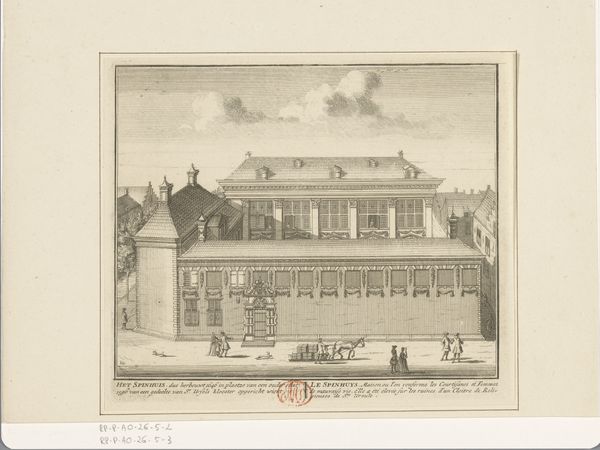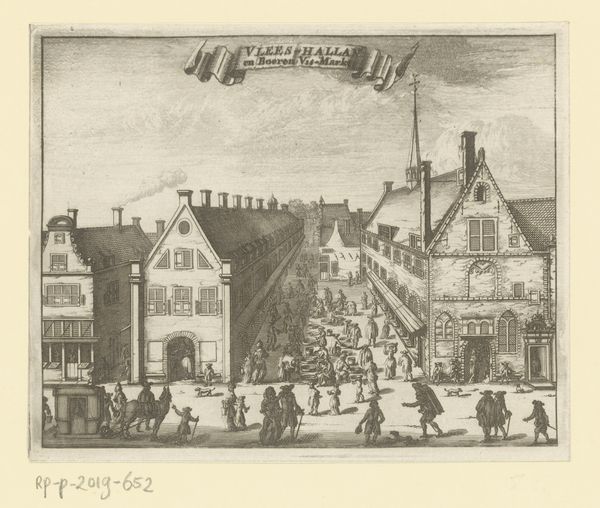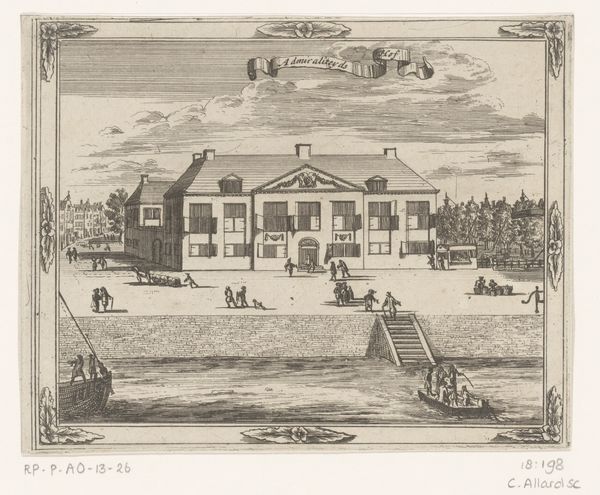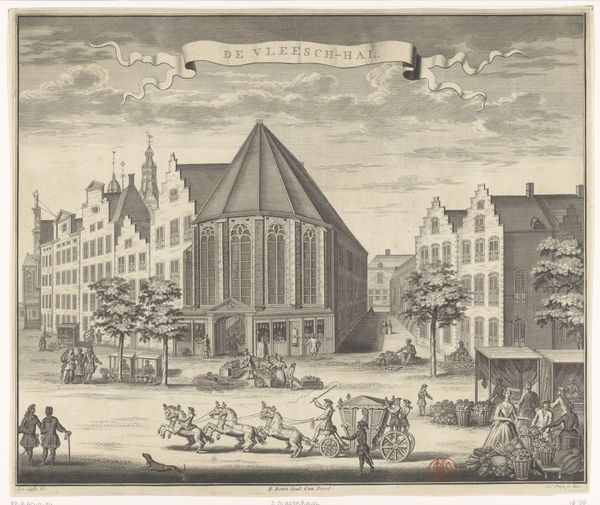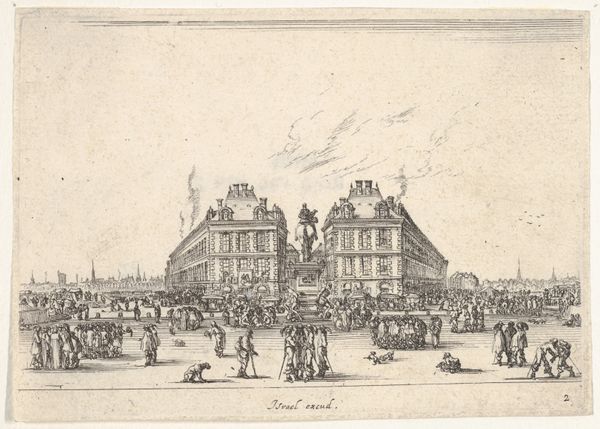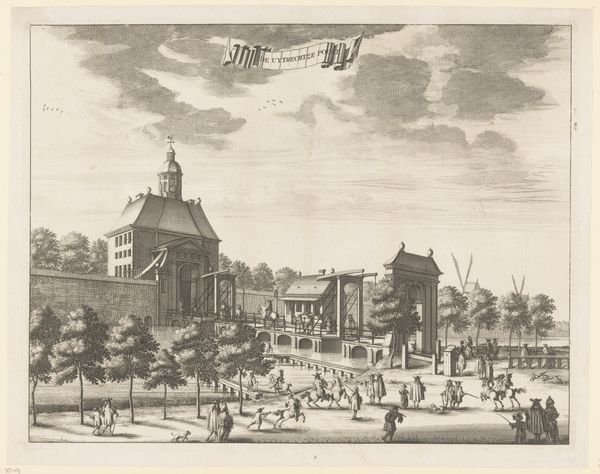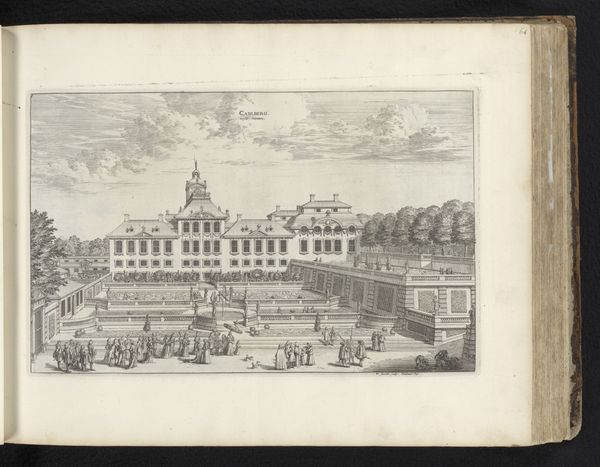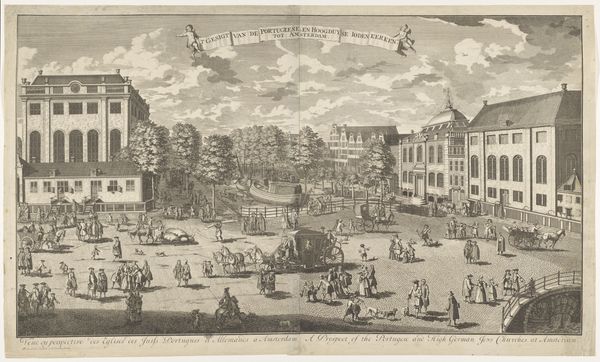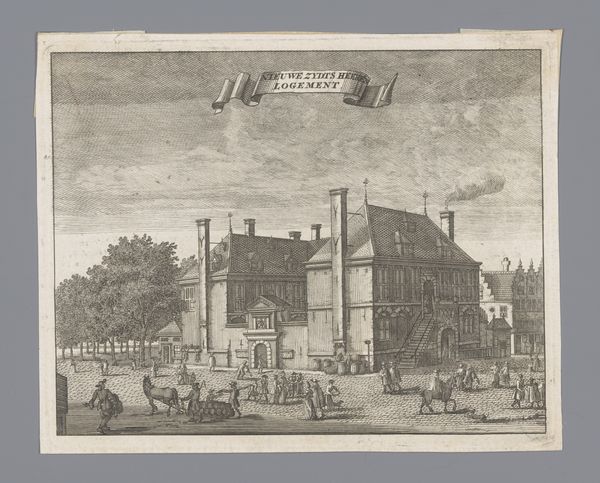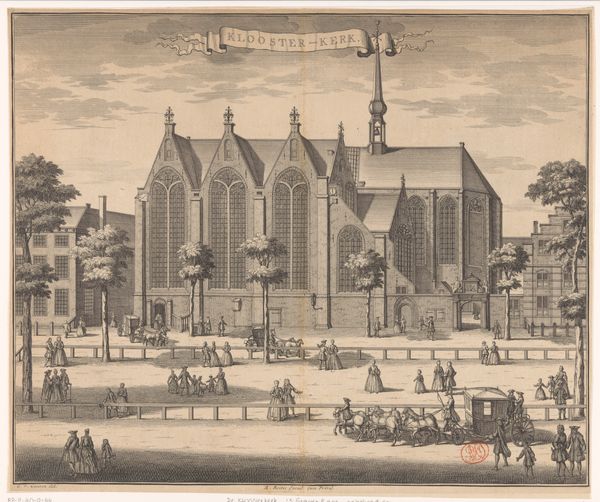
print, engraving
#
dutch-golden-age
# print
#
pen sketch
#
old engraving style
#
cityscape
#
genre-painting
#
engraving
Dimensions: height 120 mm, width 146 mm
Copyright: Rijks Museum: Open Domain
Editor: This is Jacobus Harrewijn's "Gezicht op de Nieuwemarkt te Rotterdam," an engraving from around 1696 to 1730, housed at the Rijksmuseum. It’s a lively cityscape! All those tiny people bustling about make it seem so full of life. How do you interpret the image, especially given its historical context? Curator: The energy you perceive speaks to the heart of genre painting, capturing everyday life. Consider "De Kenney Waagh" – "The Butter Weighing House"– named on that banner. Weighing houses weren’t just about commerce. They became civic symbols, centers of social interaction. Editor: So, the weighing house becomes a visual shorthand for community? Curator: Precisely. Look at the figures. Do you see patterns or groupings? Harrewijn isn't merely documenting, he's constructing a narrative about Rotterdam’s identity through these symbolic markers and activities. He emphasizes an ordered, prosperous society through detailed symbolism, from the dress of the figures to the activities performed. Editor: It's fascinating how seemingly mundane details can hold so much cultural weight. I’m curious about the frame around the image - is it integrated with the scene? Curator: It could simply be a decorative element of the print, though it is hard to know if that reflects how the scene might have been originally perceived and the addition gives the whole work a feel akin to a theatre stage. Overall, this piece shows how symbols shape a sense of collective memory. Editor: That’s really insightful! Seeing how ordinary scenes transform into complex representations of a community’s identity changes how I perceive these older works. Curator: Indeed, these cityscapes reveal the intricate relationship between people, places, and the stories they tell.
Comments
No comments
Be the first to comment and join the conversation on the ultimate creative platform.
